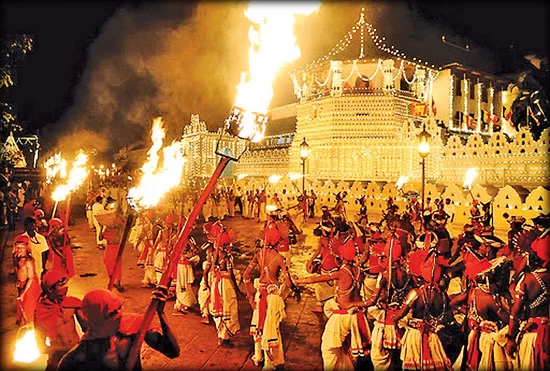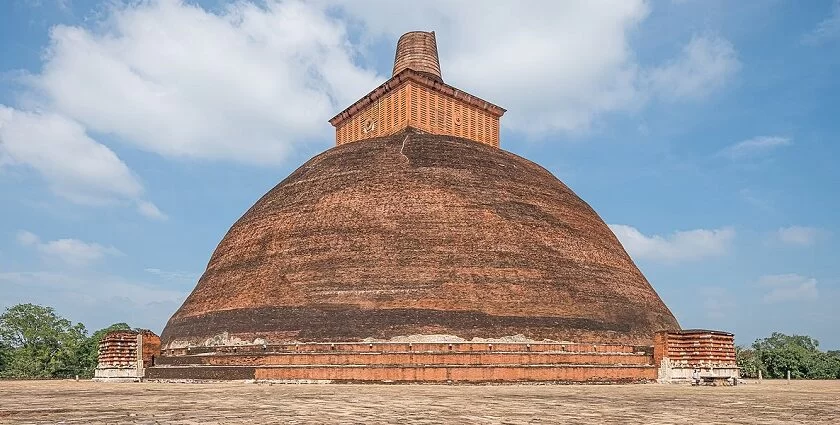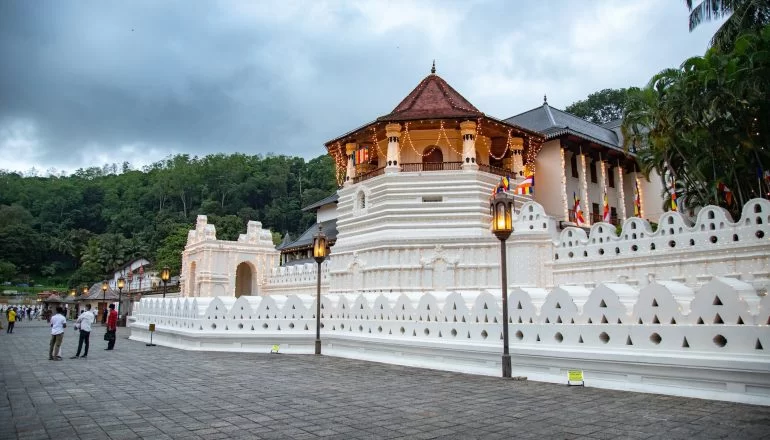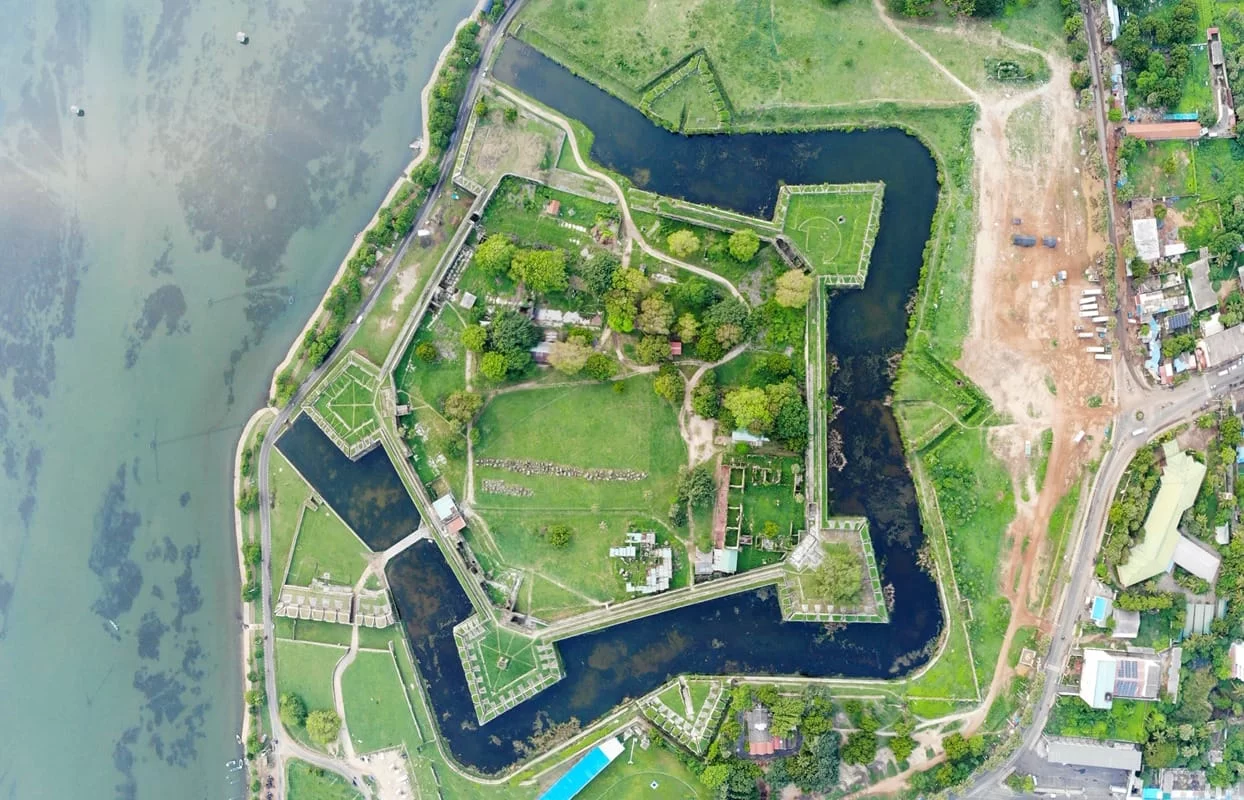Explore Tamil Heritage Sites in Sri Lanka’s North: A Cultural Journey
- Introduction to Tamil Heritage Sites
- Must-Visit Tamil Heritage Sites in Northern Sri Lanka
- Cultural Experiences Along the Journey
- Planning Your Trip to Tamil Heritage Sites
- Local Stories and Experiences from Travelers
- Book Your Tamil Heritage Tour Today
1. Introduction to Tamil Heritage Sites
The northern region of Sri Lanka is a treasure trove of Tamil heritage, brimming with historical significance, spiritual depth, and cultural richness. Home to a vibrant Tamil community, this region offers travelers a unique opportunity to explore ancient Tamil temples, historical landmarks, and a cultural landscape steeped in centuries of history.
From the bustling towns of Jaffna to the tranquil temples in Mullaitivu, the Tamil heritage sites in Sri Lanka’s north present an unforgettable journey. These sites not only reflect the Tamil people’s resilience but also provide a deeper understanding of Sri Lanka’s diverse cultural fabric. Whether you’re a history enthusiast, a cultural explorer, or simply seeking a unique travel experience, the Tamil heritage sites in the north of Sri Lanka will captivate your imagination.
2. Must-Visit Tamil Heritage Sites in Northern Sri Lanka
The Tamil heritage of Sri Lanka is preserved through numerous temples, ruins, and cultural sites spread across the northern region. Here are some must-visit sites for any traveler keen on exploring the Tamil heritage:
- Jaffna Fort: A historical landmark, Jaffna Fort offers a glimpse into Sri Lanka’s colonial past while preserving its Tamil influences. Built by the Portuguese in the 17th century and later expanded by the Dutch, this fort is one of the most iconic structures in Jaffna.
- Nallur Kandaswamy Kovil: This magnificent Hindu temple in Jaffna is dedicated to Lord Murugan. Known for its intricate architecture, vibrant festivals, and historical significance, Nallur Kandaswamy Kovil is a centerpiece of Tamil religious life in Sri Lanka.
- Thiru Koneswaram Temple: Located in the ancient city of Trincomalee, this temple is one of the most important Tamil Hindu shrines in the country. Overlooking the Indian Ocean, the temple offers a serene atmosphere for reflection and devotion.
- Keerimalai Springs: Known for their healing properties, the Keerimalai Springs near Jaffna are considered sacred by Tamils. Visitors can enjoy a refreshing dip in the natural springs while absorbing the spiritual ambiance.
- Mullaitivu and its Temples: The temples of Mullaitivu are quiet reminders of the Tamil people’s deep-rooted history in the north. These temples, nestled in lush landscapes, reflect a profound sense of peace and spirituality.
3. Cultural Experiences Along the Journey
A visit to Tamil heritage sites in Sri Lanka’s North isn’t just about the monuments and temples; it’s also an opportunity to immerse yourself in the local Tamil culture. Travelers will experience vibrant festivals, traditional Tamil music and dance, and a warm hospitality that is unique to the region.
Throughout your journey, take part in local celebrations such as the Nallur Festival in Jaffna, which brings the streets to life with colorful processions and devotional performances. You’ll also encounter traditional Tamil crafts like pottery, weaving, and sculpture, offering a hands-on experience of the local artistic heritage.
Don't miss the opportunity to savor authentic Tamil cuisine, which includes delicacies like dosa, idli, and biryani. The food in northern Sri Lanka is as diverse and rich as its cultural history, with flavors influenced by Tamil traditions and regional spices.
4. Planning Your Trip to Tamil Heritage Sites
Visiting Tamil heritage sites in Sri Lanka’s North requires some planning to ensure a smooth and rewarding trip. Here are some tips to help you get started:
- Best Time to Visit: The best time to visit the northern region is during the dry season, between May and September. This allows you to explore the temples and landmarks comfortably without the hindrance of heavy rain.
- Transportation: While public transport is available, hiring a private vehicle or joining a guided tour offers a more personalized and flexible travel experience. Many tours are available that focus on Tamil culture and heritage.
- Respect Local Customs: When visiting religious sites, dress modestly and follow local customs, such as removing your shoes before entering temples.
- Accommodations: There are a variety of accommodation options ranging from budget guesthouses to more luxurious hotels, especially in Jaffna and Trincomalee.
5. Local Stories and Experiences from Travelers
One of the most memorable experiences shared by travelers who have explored Tamil heritage sites in Sri Lanka’s North is the warm reception by the local Tamil communities. For instance, a visitor to Jaffna recounted how a local family invited them to witness the Nallur Kandaswamy Kovil festival from their rooftop, offering them a unique view of the colorful parade and a taste of homemade Tamil delicacies.
Another traveler shared their experience of visiting the Keerimalai Springs during the early morning hours, where they met a local priest who explained the spiritual significance of the springs. This encounter turned into a deep conversation about Tamil beliefs, local customs, and the importance of the site in Tamil culture.
6. Book Your Tamil Heritage Tour Today
Exploring Tamil heritage sites in Sri Lanka’s North offers more than just a traditional sightseeing experience. It’s a journey into the heart of Sri Lanka’s Tamil culture and history, one that will leave you with lasting memories and a deeper appreciation for the region.
If you're ready to embark on this cultural adventure, visit Tamil Travel Lanka to learn more about curated tours that take you to the heart of Tamil heritage. Book your tour today and discover the timeless beauty of Sri Lanka’s northern Tamil heritage!






